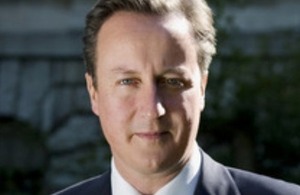Prime Minister David Cameron and Taoiseach Enda Kenny welcome publication of the joint British–Irish economic study
Prime Minister David Cameron and Taoiseach, Enda Kenny welcome the publication of the joint British–Irish economic study.

David Cameron
The Prime Minister David Cameron and the Taoiseach Enda Kenny welcomed the publication of the Joint (British-Irish) Economic Study Report ‘Evaluating the Value of the Economic Relationship Between the United Kingdom and Ireland’.
In March 2012, the Prime Minister and the Taoiseach agreed a Joint Statement setting out a vision of closer bilateral cooperation between Britain and Ireland over the next ten years. One of the key elements provided for in that Statement was the preparation of a joint evaluation of the depth of economic relations between Britain and Ireland and of the opportunities for closer collaboration in support of growth to the mutual benefit of both islands.
Following a competitive tendering process, PA Consulting Group and Cambridge Econometrics were commissioned to carry out the joint study. Their report to both governments draws on the contributions of policy makers, industry experts and businesses. The report will be an important contribution to the broader process of collaborative working between the two governments and their administrations.
Throughout the report the benefits of further collaboration across a range of sectors, including research and development and energy, are clearly depicted.
Taoiseach Enda Kenny said:
I am confident that the joint economic study report will help to identify further areas for cooperation. The Prime Minister and I have requested that the Permanent Secretaries and Secretaries General Group work up further policy recommendations on the basis of the study findings and recommendations.
Prime Minister David Cameron said:
I’m delighted this report has identified such a wide range of sectors in which Britain and Ireland can further strengthen economic collaboration to boost growth and help our countries succeed in the global race. The Taoiseach and I have tasked the British Cabinet Secretary and the Secretary General to the Irish Government with making sure we deliver on these ideas.
Examples of sectoral recommendations include:
- energy sector: exploring opportunities for renewable energy trading as described in the recent memorandum of understanding.
- research & development and innovation sectors: structuring and facilitating academic-industry research collaborations
- tourism and travel sector: continuing to facilitate travel between Great Britain, Ireland and Northern Ireland; this would include addressing perceived barriers to access for tourists, such as visa recognition/processing (building on the success of the visa waiver programme)
- agri-food sector: building on current collaboration on food chain security, to establish common basis of standards and practice around priority risk areas of biosecurity and food safety
- construction sector: sharing knowledge around funding for infrastructure to kick-start development projects
- financial and professional services sector: sharing knowledge on intelligent funding of small and medium enterprises (SMEs)
Note for editors
-
the 2012 Joint Statement agreed by the British Prime Minister and the Taoiseach provided for the preparation of a joint evaluation of the depth of economic relations between Britain and Ireland and of the opportunities for closer collaboration in support of growth to the mutual benefit of both islands
-
in November 2012 PA Consulting Group were formally appointed by the British Permanent Secretaries and the Irish Secretaries General Group to carry out the joint study and have engaged extensively with the administrations and other interests in Britain and Ireland, including Northern Ireland
-
the terms of reference for the study, informed by the key principles and shared commitments set out in the Joint Statement itself, were:
- to review and evaluate the depth of interaction and interdependence between the British and Irish economies
- to identify the common strategic challenges and opportunities facing both economies
-
the project was overseen by a Steering Group comprised of senior officials from both jurisdictions
-
the final report is now complete and will feed into the future work programme of the British Permanent Secretaries and the Irish Secretaries General Group
-
the report is divided into two volumes: Volume 1 looks at opportunities (largely by sector), drawing on volume, which presents a detailed macro and micro-economic analysis of the context for UK-Ireland collaboration. Each chapter sets out long term trends, recent developments and future prospects
The report quantifies in detail the depth of the relationship between the two countries. The close economic relationship between UK and Ireland is apparent in a range of key macro-economic indicators. The macroeconomic environment is examined under four headings – long-term trends, recent development, future prospects and drivers and constraints (Volume 2, chapters 1 and 2)
A summary of the findings shows that:
- UK remains Ireland’s largest export destination with 16% of Ireland’s total industrial exports in 2011; similarly it is the largest recipient of Irish service exports with an 18.5% share
- UK jobs resulting from exports to Ireland in 2009 are estimated at 208,000; jobs in Ireland resulting from exports to UK are estimated at 198,000 - this represents around 10% of total Irish employment
- in 2011, UK nationals represented over 2.5% of total sector employment in Ireland; similarly Irish nationals represented over 0.75% of total sector employment in the UK (see Volume 2, figures 18 and 19)
- the stock of UK’s Foreign Direct Investment (FDI) in Ireland in 2011 was $69.21 billion; Ireland’s stock in the UK was $65.19 billion
- UK and Ireland created some $39.42 billion of Gross Value Added (GVA) in contributing to each other’s final demand in 2009
- UK value add to Irish foreign final demand was worth $15.16 billion
- Irish value add to UK foreign final demand was worth $24.26 billion. This is 2nd only to the US and over three times that of Germany (see Volume 2, figures 9 and 10)